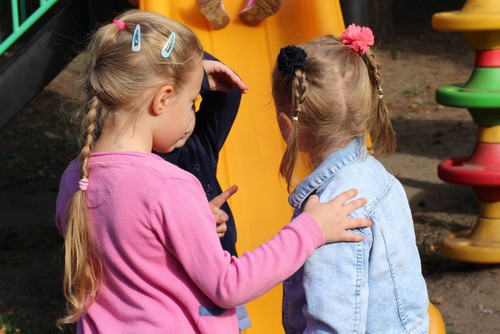Developing Communication Skills among ESL Students in Primary School
by Anna Sawa
A vital goal of teaching a foreign language is developing students' communication skills. They should be improved gradually among ESL students in primary school. Communication activities need to be adjusted to children’s age and stage of their development. In this post you can find some methodes and techniques how to improve foreign language skills in a child-friendly way.

Vocabulary
New vocabulary items and lexical chunks are the base of communication skills. They should be familiar to students in their mother tongue. They need to be connected with children’s interests and name objects around them. You can make memorization process easier and faster using flashcards, posters and illustrations as you teach new vocabulary. Whereas songs, rhymes and chants make the process long lasting and enjoyable. What is more, ESL students learn correct pronunciation and grammar structures by songs as well as how the words work together.
Listening skills
Listening comprehension exercises take various forms and their choice depends on teaching goals. At the beginning children listen to new vocabulary and try to recognize and remember them. Then they can listen new lexical items in simple content of a song or rhyme. Students listen to short dialogues packed with new vocabulary in chunks too. When they are familiarised with new words and structures they are ready to listen to a story on the topic. Even if it contains more compicated expessions and structures, when it is supported by colourful pictures, sound effects or well known context, students are able to understand general sense of the story.
Speaking skills
Speaking is crucial for improving communication skills. The main goal of speaking activities in ESL primary classroom is to encourage students to use a target language and build their self-esteem as foreign language speakers. That is why, children need to know some words, expressions and structures which they can use playing games, creating their own statements and dialogues or taking part in short performences and school plays. Additionaly, they are motivated to practise pronunciation, word stress and intonation during singing songs and speaking poems.
Reading and writing skills
The improvement of reading and writing skills among ESL students in primary school should be heavily dependent on literacy abilities in their mother tongue. At first children read and match single words to the pictures. Then they trace or rewrite them. After that they read simple sentences and write down missing words in gaps. That way they are getting ready for reading more complex texts and writing their own simple sentences, short dialogues and esseys in the future. They can practise these skills using reading comprehension and writing worksheets.
Developing communication skills of ESL learners is for sure a fundamental teaching purpose in primary school. It can be easily achieved if a teacher takes into account students’ interests, internal curiosity and their need to communicate with others. Playing games, singing songs and creating presentations they learn a foreign language in a natural and giving pleasure way.
To develope English language skills of your ESL students you can use variety ready-to-use worksheets and activities on many topics available on the Teacher's Zone website for free. Enjoy teaching :)